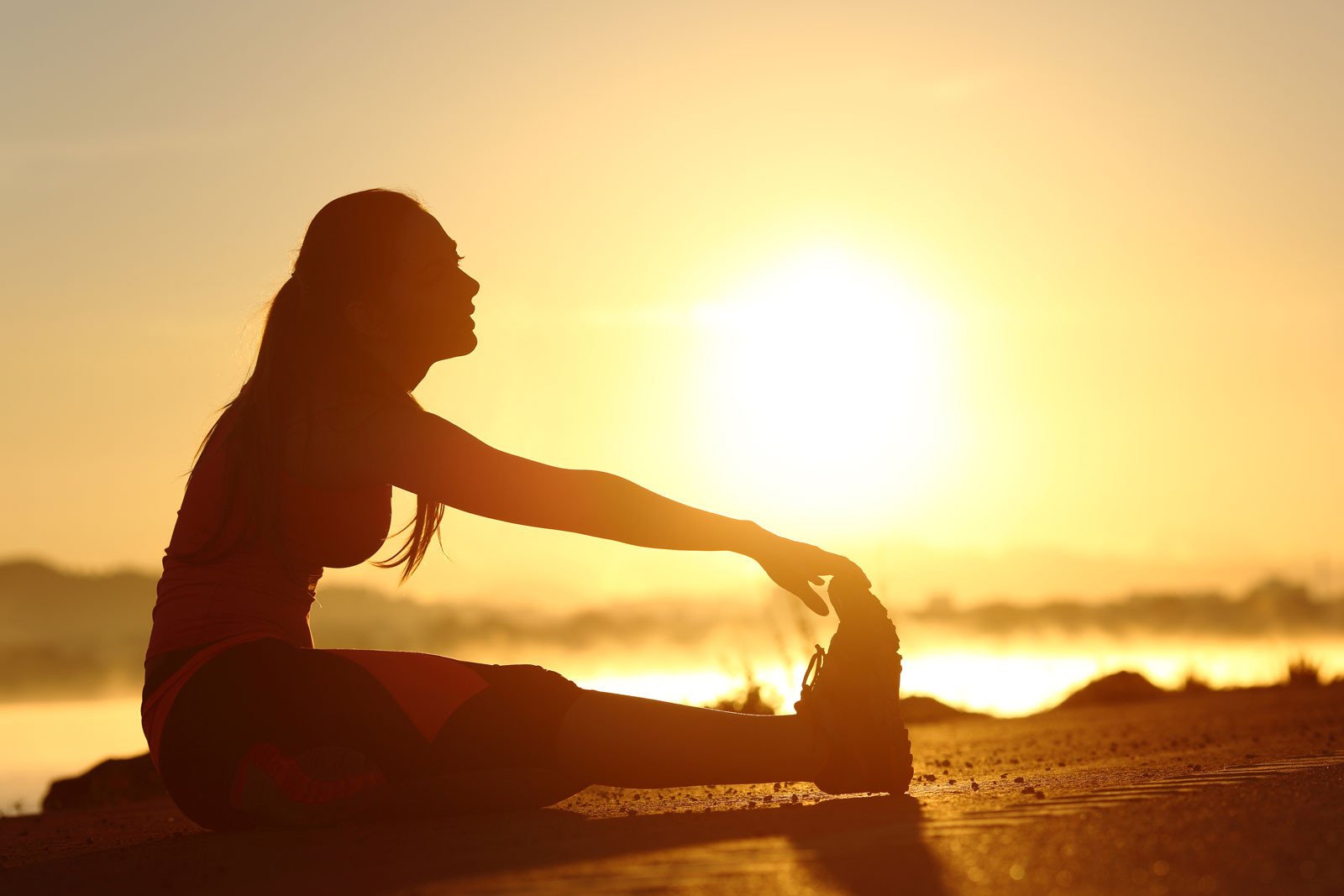Free Shipping - On Orders Over $99 (USA, Canada, UK, & AU)

How Weather Changes Ruin Our Sleep (And How To Fight It)
November 10, 2025 4 min read
One area which is often adversely affected by these seasonal changes is our sleep. There are a lot of aspects of having a good night’s rest which are under our control. But changes in temperature, atmospheric pressure, precipitation, and humidity can have both a positive and negative impact on our rest.
How Fall and Winter Weather Affects Your Sleep
There are some benefits to the drop in temperature in late fall and winter. One Washington Post survey found that 80% of respondents preferred sleeping in cooler weather. The drier air can also help people fall asleep as it helps keep airways free and clear. But the shorter days that this time of year brings us in the Northern Hemisphere also means less sunlight, which in turn means less vitamin D. Research has revealed that the lack of sunlight in the winter may influence our serotonin levels, which may be the reason why many individuals feel more depressed and fatigued in the winter. Light to dark cycle changes can also have an effect on when our bodies release melatonin. This means that you may feel tired earlier or later than you typically would. So how can you combat those winter blues? According to research from Purdue University, exposing yourself to sunlight can significantly help, though how much sun you need depends on how much pigmentation is in your skin:
- Fair skinned individuals need 9 minutes in the sun each day
- Medium skinned individuals need 16 minutes in the sun each day
- Dark skinned individuals need 38 minutes in the sun each day
With 25% of your skin exposed, this will allow you to absorb 2000IU of vitamin D. If you can’t get outside during the day, one study published in the Journal of Clinical Sleep Medicine found that sitting by a window can help. Otherwise you may want to consider other alternatives such as vitamin D supplements, UV lights, or in extreme cases (such as if you experience Seasonal Affective Disorder or “SAD”) you may want to look into white light therapy.
How Warmer Temperatures Affect Sleep In Spring and Summer
As the temperatures begin to rise, many people may find it more difficult to sleep because of the hot and humid ambient air. Being hot can prevent your body from reaching “deep sleep” mode and it can deprive you from receiving beneficial hormones which are released during the deeper stages of rest. There are some solutions you can try for this issue: a) Do not go to bed with a full stomach. Digestion will increase your body temperature. b) Invest in an air conditioner. If necessary, use ceiling fans and open your windows to create a cooler environment. c) Use natural lightweight fiber bedding and pajamas. These will increase air circulation.
Tackling Seasonal Sleep Issues
Every seasonal change brings about its own set of issues. One old wives’ tale about being able to feel weather changes “in your bones” may not be too far from the truth. Two studies – one from Tufts University and another Dutch study – found that colder weather and an increase in barometric pressure were correlated with an increase in arthritis pain. Another study found that a decrease in barometric pressure, hotter temperatures, and humidity could increase the occurrence of migraines in sensitive individuals. Each of the seasons also bring certain allergies and illnesses:
- Spring and Summer: Tree and grass pollen
- Fall: Ragweed
- Winter: Increased exposure to dust mites
In winter there is also a notable spike in the number of colds and flu cases (which many researchers believe is due to reduced exposure to the sun). Allergies, colds, and the flu can make sleep uncomfortable and can result in coughing and snoring, making us more restless in our sleep. Even the medications which we use to treat our symptoms have been shown to impair overall sleep quality, especially antihistamines. Stormy weather which can rage at any time of the year can also have a negative effect on our sleep. Apart from the anxiety which comes when bad weather strikes, it has been found that obstructive sleep apnea (OSA) may also be affected by stormy weather to some extent. The Journal of Clinical Sleep Medicine found that the severity of OSA symptoms were correlated with atmospheric pressure. The lower the atmospheric pressure – associated with weather systems – the increase in OSA symptoms. There have also been links made between storms and asthma. Researchers believe that this may be due to an increase in pollen in the air, which may trigger asthmatic symptoms.
Tips For Improving Your Sleep Year-Round
There is still much to be learned about the biology behind sleep and what our bodies and brains do while we rest. But you do not need to go into every season completely unprepared. Start by taking a look at the outside factors which may be influencing your sleep in addition to your bedroom habits. If you are in a colder climate, for example, a humidifier set on “low” will add some much needed moisture to the air which will keep your sinuses healthy and make you less susceptible to germs. There are a number of other controllable factors which could influence your sleep:
- Keep your bedroom dark and cool
- Make sure your bedroom remains a place of relaxation (this may mean removing smartphones, tablets, televisions and other electronics from your room)
- Stick to a regular sleep-wake schedule to maintain your body’s natural circadian rhythm
- Be prepared for you – or your partner – to snore
Stop Seasonal Sleep Distress With The Good Morning Snore Solution
From allergies to illness to other health issues, snoring is something which affects at least half of all people at some point in their lives. Before you or your partner lose yet another night’s rest to snoring, try the Good Morning Snore Solution. Backed by clinical data and developed by professionals in the medical and dental community, the Good Morning Snore Solution is a BPA free mouthpiece which is proven to help reduce snoring and daytime drowsiness.
References:
https://www.sleepcycle.com/news/weather-affect-u-s-sleep-patterns/ http://www.huffingtonpost.com/rosie-osmun/sleeping-with-the-seasons-see-how-weather-influences-your-sleep_b_7269960.html https://www.bustle.com/articles/113278-6-scientific-ways-weather-affects-your-mood-so-you-can-adapt-your-mind-and-body-through
https://www.ncbi.nlm.nih.gov/pmc/articles/PMC3427038/
http://myemail.constantcontact.com/Friday-Snewzzz%E2%80%94Is-This-Heat-Affecting-Your-Sleep-.html?soid=1102771164771&aid=L59D8G1tmT8
http://jamanetwork.com/journals/jamapsychiatry/fullarticle/210137
http://blogs.webmd.com/sleep-disorders/2013/02/vitamin-d-deficiency-and-daytime-sleepiness.html
http://www.aasmnet.org/JCSM/ViewAbstract.aspx?pid=29503
http://www.arthritis.org/living-with-arthritis/pain-management/tips/weather-pain.php
https://www.ncbi.nlm.nih.gov/pubmed/24462921
https://www.bcm.edu/news/sleep-disorders/experts-warn-against-antihistmaines-sleep-aid
http://www.mayoclinic.org/diseases-conditions/migraine-headache/expert-answers/migraine-headache/faq-20058505
https://www.ncbi.nlm.nih.gov/pmc/articles/PMC2854702/
http://qjmed.oxfordjournals.org/content/106/3/207.long
Also in Blog

Healthy Sleep Goals For 2026
December 22, 2025 6 min read

💨 Are Your Nighttime Breathing Issues Robbing You of Your Health and Your Energy?
December 12, 2025 3 min read
Breathing issues during sleep, collectively known as sleep-disordered breathing, are a major public health concern.

Is Your Snoring a Sign of Something More Serious? Unpacking the Science of Sleep
December 05, 2025 3 min read
When you snore, what's actually happening?
Join our Insiders Club
Every week you will receive specials, discounts, and giveaways.
Categories
- Better Sleep
- depression
- Fitness
- funny animal
- Global Citizenship
- health
- Mental Health
- mouthpiece
- nutrition
- pillow
- Productivity
- relationships
- sleep
- sleep apnea
- sleep deprivation
- Sleep Tech
- snoring
- snoring humor
- snoring jokes
- snoring sounds
- stop snoring
- StopSnoringStartLiving
- technology
- Tongue displacement
- travel
- video
- Young Adult

